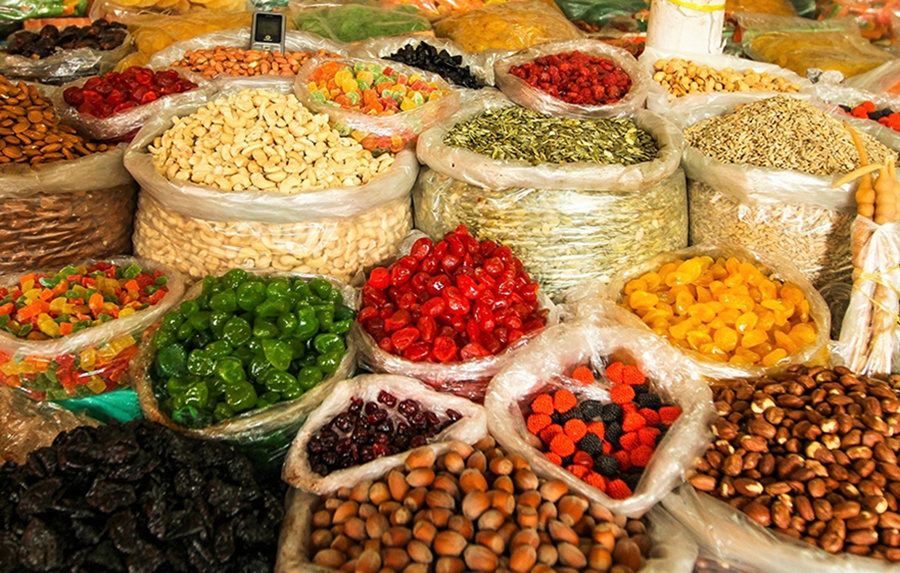The Ministry of Health and Social Welfare, stakeholders in the food sector and partners have presented the revised National Policy on Food Safety and Quality and its Implementation Plan.
The presentation was made on Friday in Abuja as part of activities to commemorate the 2024 World Food Safety Day with the theme ‘Food Safety: Prepare for the Unexpected’.
The 2024 theme, it was noted draws attention to food safety management and underlines the importance of being prepared for food safety incidents, no matter how mild or severe they can be.
Also inaugurated were four inter-sectoral Technical Working Groups to provide expertise and leadership to drive effective communication, capacity building and strategic partnerships among stakeholders.
The TWGs are part of continued efforts to strengthen and harmonise Nigeria’s regulatory environment and risk-based food safety systems, while improving industry engagement in the national regulatory processes and compliance with international food safety standards.
The groups are also focused on risk-based regulations and risk analysis in food and feed safety; food and Sanitary and Phyto-Sanitary inspection; traceability and supporting technologies and education and research.
The News Agency of Nigeria reports that World Food Safety Day, marked on June 7, every year, was earmarked by the World Health Organisation.
According to WHO, every year, nearly one in 10 people in the world, an estimated 600 million people fall ill and 420,000 die after eating food contaminated by bacteria, viruses, parasites and chemical substances.
The Minister of Health and Social Welfare, Prof. Ali Pate, in his address said the policy, rooted in the one health approach, addresses a spectrum of critical areas.
Represented by the Permanent Secretary, Daju Kachollom, Pate said it encompassed the principles of risk analysis.
He stated, “The issue of emerging contaminants within the nation’s food chain, and the establishment of an integrated foodborne disease surveillance and response system sets forth benchmarks for the safe handling, marketing, and sale of food throughout our nation.
“Moving beyond mere food safety, the policy propels us towards a future where the food we consume is not only safe but essentially healthy.
“It lays out strategic plans to reduce the intake of Salt, Trans Fatty Acids, Sugar, and Alcohol, among others.
“By ensuring that our diets are healthful, we aim to alleviate the growing burden of non-communicable diseases that afflict our country.”
Pate also said that the policy was a testament to the Federal Government’s unwavering commitment to the well-being of citizens.
The minister, however, called on all citizens to contribute actively to the preservation of the purity of food.
“Yet, the implementation of this policy is not a solitary journey. It demands the concerted efforts of all parties at both National and Sub-National levels.
“This includes our diligent farmers who nurture the soil, the regulators who forge the guidelines, the scientists whose innovations enhance safety, and the consumers who make informed choices with every purchase and every bite.”
Speaking to the theme of the day, Pate said it was a clarion call to action, a reminder that vigilance was the guardian of the nation’s sustenance.
He said, “We live in a world of unpredictability, where the unexpected lurks around every corner.
“It is not just the menace of foodborne diseases that we battle, but the unforeseen events that can compromise the integrity of our food supply.
“From natural disasters that devastate crops to the menacing power of climate change, from the accidental contamination of a trusted food source to deliberate adulteration for profit, the threats are as varied as they are frightening.”
The minister, however, assured that the Federal Government would explore public-private partnerships, leverage technology, and prioritise essential services for food safety.
One of the partners, the Programme Manager, United States Department of Agriculture Foreign Agricultural Service, Kelly Scavella, said, “The agency was partnering with the ministry and other Nigerian stakeholders to help build food safety systems that are relevant to consumers, producers and regulators’’.
According to her, the TWGs were set up to modernise Nigeria’s food safety regulatory framework in line with international best practices to address food safety concerns and facilitate the development of a strong agriculture and food industry.
She stated, “Over the last decade, the Nigerian government has implemented important changes to bolster food safety by examining and enhancing critical components of the national food safety control system.
“Harnessing the expertise of the TWGs aligns with the core mission of World Food Safety Day, emphasising the importance of collaboration and innovation in safeguarding food and feed safety.
“As we commemorate this global initiative, the launch of these TWGs underscores Nigeria’s commitment to ensuring safe and reliable access to food across Nigeria.”
Other partners are the Food and Agriculture Export Alliance, the University of Missouri’s Africa Food Safety Initiative, and the Nigerian Economic Summit Group.
(NAN)
